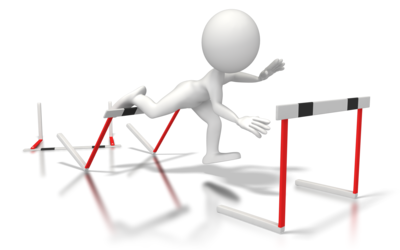In this latest offering we explore some of the traits that differentiate the best coaches and practitioners in their fields. One disclaimer before we start is that this post is based on observational study. To some degree the themes we explore reflect wisdom shared by prominent individuals via different forums and media. However, I unapologetically give more weight to traits and behaviours that I have directly observed. I have been fortunate to interact with a representative sample of these exceptional individuals across multiple sports in various contexts; this has provided the opportunity to see how they approach their work with ‘live’ athletes in different scenarios, as opposed to how individuals claim they act and operate in practice. The themes we explore are therefore more a product of this direct observation, rather than simply distilling what has been presented elsewhere.
Informed Shorts: Making New and Better Mistakes
As the saying goes, there is no success without struggle. The fear of making mistakes can become disabling, particularly if our aim is to try something new or different. So perhaps we need to to reframe how we think about making errors to avoid being too constrained by the desire to not get it wrong. The quest to be creative and innovative in our problem solving necessitates having the freedom to try new and different things. This principle applies whether we are seeking to explore new questions, or find different solutions to existing questions.
Informed Shorts: 'Meta Abilities' for Coaches, Practitioners and Athletes
In this second ‘Informed Short’ we explore the concept of meta-abilities, and unpack the superpowers that we can harness to enhance our practice in a variety of realms as coaches and practitioners in sport, and educate our athletes to make use to these tools for themselves. We can define meta-abilities as ‘higher order’ skills. A defining characteristic of meta-abilities is that they effectively determine how well we are able to make use of our other capabilities.
The Why, What, and How of Coaching Movement: Part 2
As practitioners we are all essentially coaches, and in our various realms we find ourselves directing athletes on how we want them to move. In the first part of this 3-part post we delved into the why, as we attempted to elucidate what roles we should play, and define what objectives we should be seeking to fulfil when providing instruction to athletes. With this second part on coaching movement we get into the 'what'.
Perils of Binary Thinking and Polarised Debates
For a practitioner who spends any time on social media it is easy to get the sense we are in the death throes of informed debate. Authorities (often self-proclaimed) seem to constantly spew forth evangelical proclamations, push their ideology and promote others who espouse their doctrine, and decry those who express contrary views. Sadly, it appears there are no shortage of young zealots eager to answer the call to join the modern crusades conducted on a social media battlefield. In this post we will explore the trend for binary thinking and polarised arguments that fuels the tribalism we see on these platforms, and how this is increasingly creeping into sports science and medicine circles. We will then attempt to plot a path back from the edge of the abyss, and bridge the divide between factions to allow us to return to real debate.
Rejecting the Industry
Practitioners across different domains will be familiar with their field of practice being referred to as an 'industry'. We frequently hear mention of the strength and conditioning industry, the sports physiotherapy industry, even the sports coaching industry. In this post we consider these trends for terming our professions in this way, and explore why an 'industry approach' might be problematic. From these discussions we can attempt to plot a path back to cultivating our craft, and restoring pride in our chosen profession by rejecting this ‘industry’ mindset.
Ego is the Enemy of Discovery and Progress
It is a common viewpoint that ego stunts personal growth, and most would agree that ego undermines our effectiveness as coaches and practitioners. What is less often considered is that unconstrained ego similarly obstructs progress and discovery in the areas of scientific study that exist to inform practice. At present the respective disciplines encompassed within coaching science, sports science and sports medicine are plagued with these difficulties. Einstein famously quoted to the effect that ego has an inverse relationship to knowledge – “more the knowledge, lesser the ego; lesser the knowledge, more the ego”. Yet researchers in the fields of sports science and sports medicine are showing themselves to be particularly prone to ego and the excesses associated with it. In this post we tackle the issue of ego in sports science and sport medicine, and attempt to plot a path back to sanity.
Nuance - The Path to Enlightenment in Athletic Preparation
Nuance is an under recognised keystone of practice in elite sport. We have spoken previously about critical thinking as a critical skill for coaches and practitioners in the Information Age, as a means to evaluate and integrate information from different sources. Nuanced understanding is critical for the steps that follow. Nuance is required to derive real meaning from the knowledge acquired and make use of it. Nuance is also critical to cope with the complexity inherent in human performance. In this post we will make the case for practicing nuance as an active skill in order to combat the epidemics of superficial knowledge and binary thinking.












